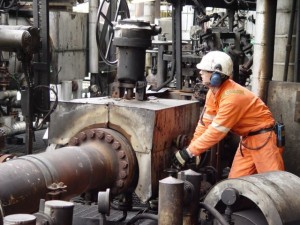No one needs to be told that preventive maintenance is necessary to maximize the life expectancy of DCU equipment. Key DCU maintenance components include the steam system and hydraulic power unit maintenance to reduce planned and unplanned downtime. DCUs are different from other refinery process units due to the coke cutting process requiring special safety concerns to eliminate the dangers that can be improved with better maintenance practices.
Experienced refinery personnel seek better DCU maintenance strategies in a forum where they can have access to experienced instructors along with the ability to share and compare maintenance and operational practices with other refiners. Unlike other petroleum refinery operations, the DCU is a semi-batch operation, involving both batch and continuous stages.
While the continuous stage of DCU operations (drum charge, heating, and fractionation) is generally similar to other refinery operations, the batch stage of DCU operations (drum switching and coke cutting) presents unique hazards and is responsible for most of the serious accidents attributed to DCUs, as discussed during the DCU training session at the May 3 RefComm® refining conference in Galveston.
It was noted that about 62 DCUs are currently in operation in the U.S. in about 33% of the country’s 125 refineries. Many of these refiners have accelerated efforts to share information regarding maintenance and best practices targetting DCU safety and reliability. At RefComm, some of the relevant maintenance points included validating the adequacy of the inspection and maintenance program for cutting wire ropes, water hoses and hoists.
Additional discussion time was dedicated to a variety of other topics, including the need to establish a gantry structure maintenance and inspection program, since they, like other sections of the unit, could become weakened due to corrosive conditions.








Leave a Reply
You must be logged in to post a comment.